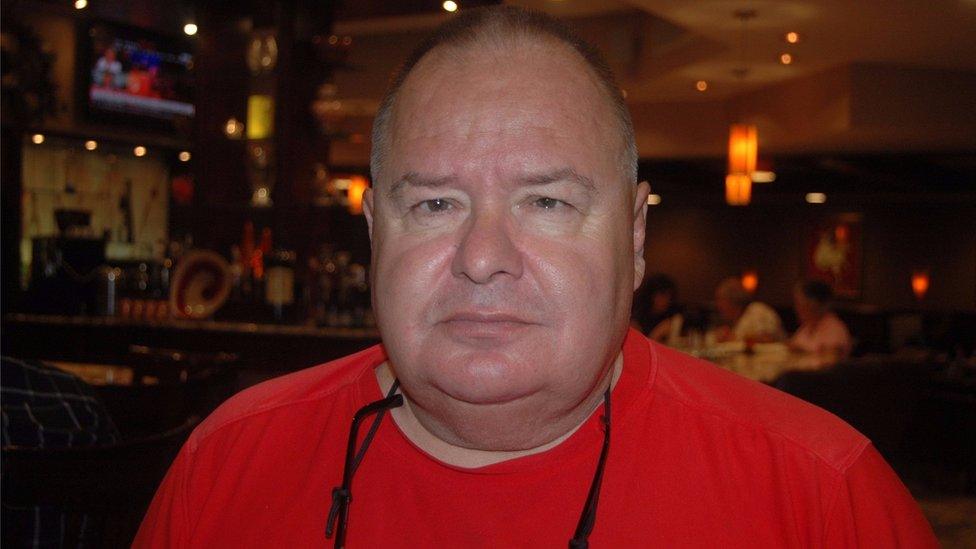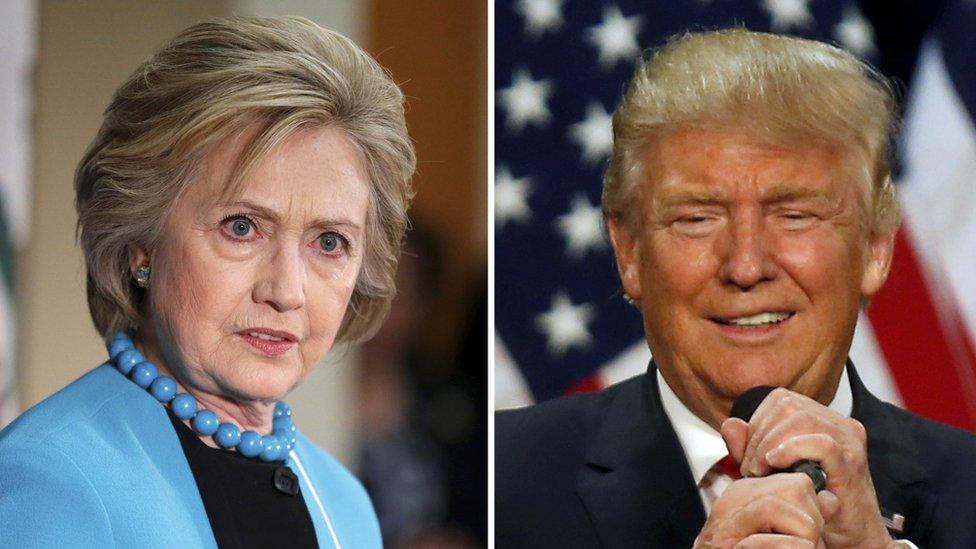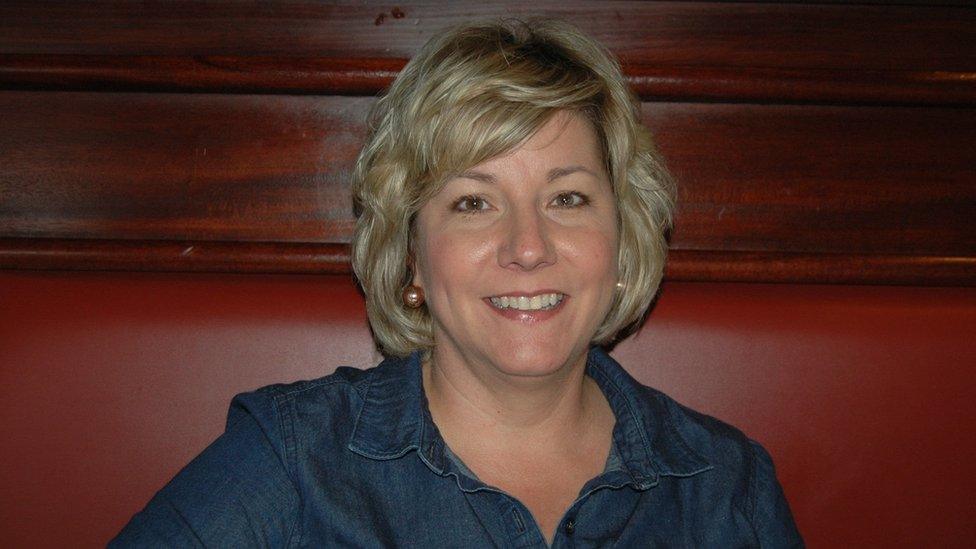The shifting allegiances of US 'Rust Belt' voters
- Published
A Pennsylvania Democrat explains why she may vote for Donald Trump
Donald Trump's nomination as the US Republican Party's presidential candidate has been a huge shock to the American political establishment, confounding the forecasts and questioning the models for predicting the outcome of November's election.
And, on a drive between the Republican Convention in Cleveland, Ohio and the Democratic Convention in Philadelphia, I gained an insight into another factor adding to the unpredictability - the growing numbers of Americans who are switching, or thinking of switching, party allegiances. In some cases, they are changing the voting habits of a lifetime.
The first switcher was just a few blocks from the Republican convention location. Tim - who didn't want to give his last name - is a lawyer who works in Cleveland's Key Tower, the tallest building between Chicago and Philadelphia. A lifelong Republican, he believes that Mr Trump is not just telling tall stories, but dangerous ones.
"I am very concerned about any leader who appeals to the worst instincts of human nature. That's very dangerous for the country and I love my country more than I love my party."
So will he vote for Hillary Clinton? "I may. I haven't quite got there, but I definitely won't vote for Donald Trump. Anyone who knows me knows how ridiculous that sounds, that I would even think of voting for her."
I heard a very different view in the run-down town of Warren, 50 miles east of Cleveland. At the 422 restaurant, the only place to eat on what local people say was once a bustling strip, I met a group of disillusioned Democrats. They used to work at the town's steel mill, which is now nothing more than a fenced-off patch of wasteland.

Former steelworker Joe Shrodek says he will be voting for Mr Trump
As jobs, opportunities and hopes have disappeared, so too has the loyalty they felt - or were encouraged to feel by the unions - towards the Democratic Party. During the 35 years that Joe Shrodek worked in the mill's blast furnace, he always voted for Democratic presidential candidates. But not this time.
"When I was there I voted Democrat the whole time, the unions endorsed [the candidate]. All that's gone now. I just want change, that's all. They need to clean house in Washington."
So, is Mr Trump the man to do that?
"I don't know," he says, "but I'm voting for him."
Watching Joe and his friends mop up the restaurant's roasted hot pepper dip with slices of white bread, local Republican Party chairman Randy Law predicts that Mr Trump will soak up the votes of many other white working class voters like them.
"I see it every day. People calling me, emailing me. There is this anti-Hillary feeling. People seeing it as a third term for Obama. People are fed up with a lot of those policies that have hurt big business, small business and trade and people are tired of being politically correct."

There are signs that disillusioned voters are querying their old political allegiances as they weigh up Mrs Clinton and Mr Trump
Crossing the state line into Pennsylvania, another swing state, where polls suggest a tight contest, I encountered a different type of switcher. Judi Radel, who owns the Yee Haw farm in Duncannon, has always voted Democrat. She was a Bernie Sanders supporter in the primaries. Patting her "girls" - the milk cows she tends on the 160 acres she farms - she says that she's leaning Republican.
"I don't trust Hillary. We've had eight years of a Hillary administration and I think we need change."
She says that she enjoyed Mr Trump's speech at the Republican convention. "I like that it was a doom and gloom speech that didn't sugar coat what's going down in our country. Our country's in dire straits right now. We need to wake up."
She expresses some misgivings about a Trump finger on the nuclear button, but doesn't think it disqualifies him from the White House.
An hour south-east of Yee Haw farm, in Pennsylvania's more affluent Lancaster County, Ann Womble is rather more concerned. She has been an active Republican Party member for 30 years and was a delegate to the 2012 convention in Tampa.

Ann Womble, a former Republican activist, says she will not vote for Trump
But the Trump takeover has led her to take a big decision - she's just cancelled her party membership. She dismisses comparisons between the reality TV star, Donald Trump, and the Hollywood actor, Ronald Reagan, who first attracted her to the party.
"Reagan's candidacy was a sunny, happy conservative insurgency into the Republican Party, because it was optimistic. Now, we're in the opposite place. Trump is attracting people to his candidacy for dark, gloomy and dangerous reasons.
"His view is of an autocratic, almost Third World leader. If he were actually president of the United States and tweeting these things that he tweets all hours of the day, saying these things to camera, it could be apocalyptic."
But, despite that assessment, Ann can't bring herself to vote for the Republican Party's bogeywoman, Mrs Clinton, in November. Although she'll support Republican candidates for Congress, she may not vote in the presidential election at all.
And that represents one of the challenges for the Democratic Party.
While disillusioned Democrats are embracing Mr Trump, disillusioned Republicans find it much harder to support his opponent. Mrs Clinton's convention may project a positive vision of America. But to really succeed it needs to address and counter the negative impression that many Americans have of her.